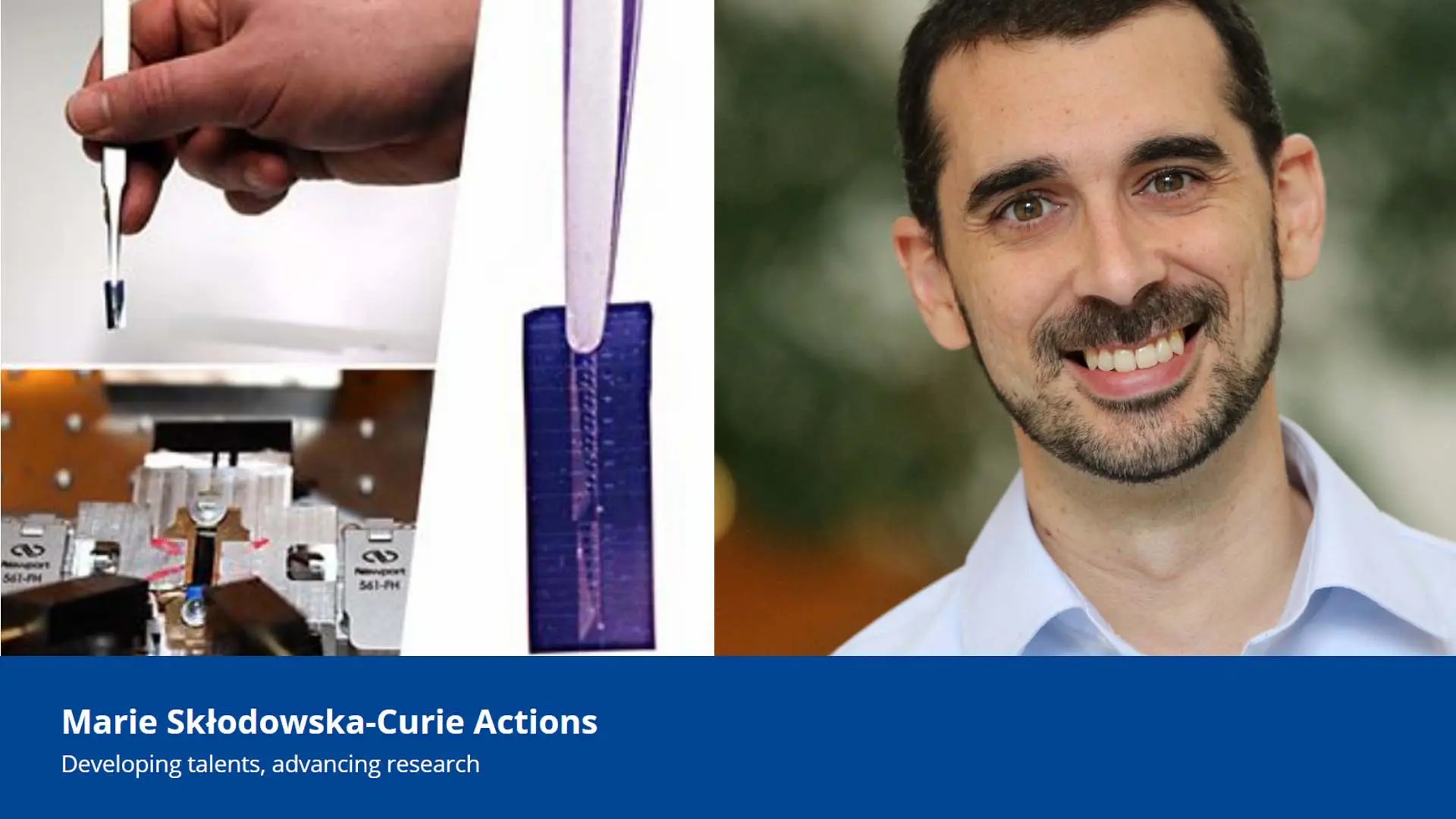
“With the right training, these PhD students will become the innovators, entrepreneurs and researchers of the future who will bring technology based on microcombs closer to the market,” says Victor Torres-Company, coordinator of the Marie Sklodowska-Curie network in microcombs that is now being established at Chalmers. Next, a massive recruitment campaign awaits to find the twelve doctoral students who now are expected to break new ground in the field.
The news that Chalmers will be leading a new Marie Sklodowska-Curie network in the field of microcombs was made public just a couple of weeks ago. The project, which runs over a four-year period, will be carried out in close collaboration with partners from European industry and academia with the aim of training twelve PhD students in photonic integration.
And Victor Torres-Company, Professor of photonics at MC2 and coordinator of the network, is more than pleased to be receiving the good news.
“I’ve participated in a similar Marie Sklodowska-Curie training network that ended in 2022 and for me it was a great experience to work closely with the PhD students in such a tailored program that relates so much to my research. So, I decided to take the relay and lead a network that will focus on the research and educational aspects that will be needed in the next five years,” he says.
Fundamental research key for microcombs approaching the market
The main ambition of the network will be to provide the research and education required to bridge the gap between proof-of-principle applications and the implementation of cutting-edge technology in the field of microcombs. Until now, system-level demonstrations of microcombs have been limited to laboratory environments, but in the long term, the hope is to approach the market. And here, fundamental research in the field is seen as absolute key when trying to reach large-scale deployment.
“Closing this gap requires a major investment and a deep understanding of the fundamental engineering challenges that the realization of integrated photonic systems entails. Some of these challenges are frontier research in the field of silicon photonics, such as electronic-photonic integration, the development of high-performance lasers, the integration of multiple optical materials and functionalities on chip, or the realization of cost-efficient and scalable packaging modules to interface with optical fibers. Other problems with microcombs are of practical matter, e.g. attaining sufficiently high optical power, operating at the quantum-limit in timing jitter, or the detection of the carrier-envelope offset frequency. The solution to these issues implies addressing fundamental research questions about soliton physics in high-Q microcavities,” Victor explains.
Strong collaborations for new areas of application
The educational network includes seven academic partners - EPFL, Ghent University, DTU, Paderborn university, Max Planck Institute, University of Lyon and Chalmers, as well as two partners from industry – Nvidia and MenloSystems.
Through collaboration between the partners of the Marie Sklodowska-Curie network, experts from leading actors in industry and academia will be able to join forces - and thereby also explore a range of new application areas, from quantum information processing to biophotonics.
“This project will contribute to creating stronger ties with relevant industrial players and other European leading departments. The project comes with both great opportunities and great responsibilities, as it involves training twelve talented PhD students in several aspects, from high-tech research in photonic integration to inclusion and diversity. The Department of Communication and Learning in Science, and Genie have been very enthusiastic from the start and have promised to contribute. With the right training, these PhD students will become future innovators, entrepreneurs and researchers who will bring technology based on microcombs closer to the market,” says Victor Torres-Company.
Massive recruitment campaign awaits
The twelve PhD students admitted to the Marie Sklodowska Curie Network can expect a comprehensive and tailored training program that, in addition to topics in the field of microcombs, covers aspects in diversity, digital science, entrepreneurship and innovation. And now an extensive recruitment campaign awaits to find the twelve doctoral students who will break new ground in the field over the next four years.
“We will soon launch a massive recruitment campaign throughout Europe. It won't be easy, but the subject is fascinating, and the possibilities are endless!” says the Victor Torres Company.